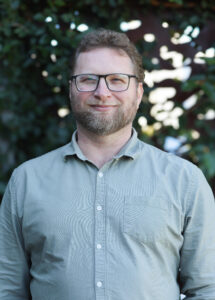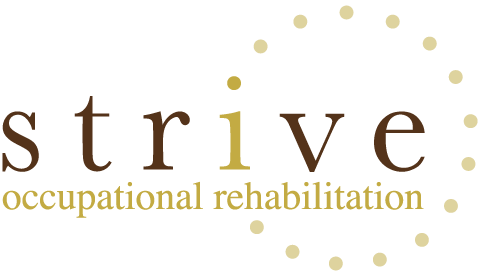Getting back on track after an injury setback isn’t always easy—but having the right support can make all the difference. Greg Pearce is a Provisional Psychologist working with Strive, and he’s all about helping people rebuild confidence, manage challenges, and find their way back to meaningful work. With a warm, down-to-earth approach, Greg works closely with clients to understand their unique situations and support their recovery journey—whether that’s navigating workplace stress, managing pain, or adjusting to new routines. He’s here to listen, guide, and cheer you on every step of the way.

1. Tell us a little about yourself and your journey to becoming a Provisional Psychologist.
I’ve always had a strong interest in psychology, and after many years in my previous career, I felt ready for a change. In 2018, I began studying psychology while living overseas, where I taught English as a second language. After completing my initial degree, I returned home to finish my thesis and begin my internship as a provisional psychologist with Strive. It’s been a long but rewarding journey turning a personal passion into a professional path.
2. What types of psychological services do you provide at Strive, and how do they support clients in their recovery journey?
At Strive, I’ve had the opportunity to deliver a wide variety of services. This includes one-on-one consultations, vocational assessments, vocational counselling, group workshops, and presentations. The work I do with Strive is incredibly diverse and interesting. What makes Strive unique is the effort with which we tailor services to each individual, ensuring they receive appropriate support that is client centred.
3. Can you walk us through a typical day in your role?
No two days are ever the same at Strive, which is something I really value. I had recently moved to Queensland and so a benefit of the role has been the travel I have been able to do across the State. Most of my work is spent in direct contact with clients, whether that’s through assessments, manager and employee support, or group presentations and workshops. The variety of services means that every day brings new experiences, new people, and new learning opportunities.
4. What strategies do you use for self-care and maintaining your own wellbeing while supporting others?
Balancing internship requirements with my role at Strive can be demanding, so I make a conscious effort to set boundaries around my time. I like to keep my screen time low and find that either going for a walk or a swim are the best activities for me to decompress at the end of the day or when taking a break for clarity of mind and maintaining a good mood.
5. What do you love most about working at Strive, and what makes it a unique place for psychologists?
Two things stand out for me, the people I work with and the variety of services. The team at Strive is incredibly supportive, collaborative, and welcoming. As a Provisional Psychologist, I’ve been given the chance to learn across different service areas. This variety not only makes the work engaging but also a rich environment for professional growth.
6. What advice would you give to early-career psychologists interested in occupational rehabilitation?
Occupational rehabilitation enables early-career psychologists to work in a multi-disciplinary work setting and engage with a variety of stakeholders, which is a great platform for personal growth and developing core competencies of the profession. At Strive, the variety of services has allowed me to explore the types of work that I find most interesting and engaging, which is important at the early stages in any career choice.

 Meet Trisha Reaston, FNQ Team Leader based in Cairns.
Meet Trisha Reaston, FNQ Team Leader based in Cairns.